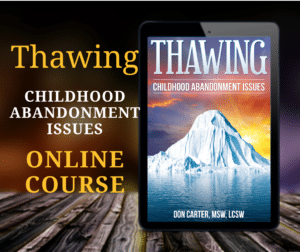
Stages of Social Development – School Age
Industry vs. Inferiority – 7 to Puberty
School-Age; aka the Latency Stage
Stages of social development begin in earnest with the school-aged child. It is during this period that the child is confronted with the need for competence and mastery in two areas – academics and social skills.

If children have had successful outcomes in the preceding stages they are likely to be prepared to make the transition smoothly. However, because the outcomes in each previous stage set the foundation for the next stages of social development, some children start out with challenges other kids do not have to face.
Along with the multitude of rapid-fire changes involved in attending school, these kids also must contend with negative outcomes such as shame, fear, and guilt which complicate these classic developmental tasks even further.
Many parents tell their kids that they “are in school to learn something — not to socialize”. This could not be further from the truth… Learning to fit in with their peers can give them the confidence and sense of competence to also excel academically. It’s therefore very important to help them acquire good social skills — and as with anything else, it takes practice.
Kids who are bright academically but less than talented socially may become loners, shy, and inhibited. They can develop a sense of inferiority despite their excellent academic achievements. Kids who are socially gifted can likewise develop a sense of inferiority if they are less able to succeed in the classroom. They may find ways to compensate for their intellectual shortcomings through sports or music.
In many cases, kids who have a negative outcome in this stage are likely to strengthen their leanings toward being an Internalizer or Externalizer — The Internalizer wears their sense of inferiority like a badge, while the Externalizer covers theirs up behind a mask of grandiosity. Internalizers tend to seek others out to follow and take care of — seeking their approval, attention, protection, and validation from someone they perceive as stronger than themselves.
Because they are frequently drawn to the opposite direction, they attach themselves to Externalizers and end up being made fun of, pregnant, abused, and/or dropping out — unless they have enough ability to make it academically despite their social difficulties.
Externalizers are the rebels, delinquents, bullies, and “hard-cases” who get all the negative attention. They have over-compensated for their sense of inferiority through reaction formation. Their outward grandiosity is a smokescreen to cover up their inward feelings of fear and inadequacy. Other kids escape into video games or anything else they can master and feel the enthusiasm of accomplishment — even if it’s dangerous, such as extreme sports, fighting, or drugs to name a few.
Self-Assessment
- ___Unmet needs in these stages of social development can be observed in present-day symptoms. For each of the following statements assign a rank between 10 (High) and 1 (Low).
- ___ I feel unaccepted by most of my peers.
- ___ I feel judged by most people my age or by those in my profession.
- ___ I feel I have little in common with people my own age, or those in my profession.
- ___ I feel excluded from the activities of others.
- ___ I do not belong to organizations because I feel self-conscious.
- ___ When I go to social gatherings, I feel out of place.
- ___ I am more comfortable being alone than with a group of friends.
- ___ The groups I have participated in feel closed, and I have not felt a part of the “clique”.
- ___ I avoid certain professional positions because I would have to talk in front of others.
- ___ I get physical symptoms of anxiety whenever I’m faced with speaking in front of a group.
- ___ I am unable to speak spontaneously in front of others. I must plan exactly what I want to say before it is my turn.
- ___ Even if I feel strongly about a subject, I will not speak in public because I get too tongue-tied.
- ___ When I speak in public, I’m not aware of anyone else in the room. I do not feel nervous, but I do seem to be disconnected from myself and others.
- ___ I describe myself as a procrastinator and feel lazy when it comes to getting things done.
- ___ I worry about going into business for myself; for fear that I do not have the self-discipline to succeed.
- ___ I have sabotaged by professional advancement because of my inability to meet deadlines.
- ___ I feel clumsy participating in any sport.
- ___ In team sports, I fear being chosen last.
- ___ I refuse to participate in a sports activity in which I feel self-conscious.
- ___ I love to dance, but only do so in the privacy of my own home.
If you find significant symptoms here, you might benefit from Don’s Thawing Childhood Abandonment Issues online course.





